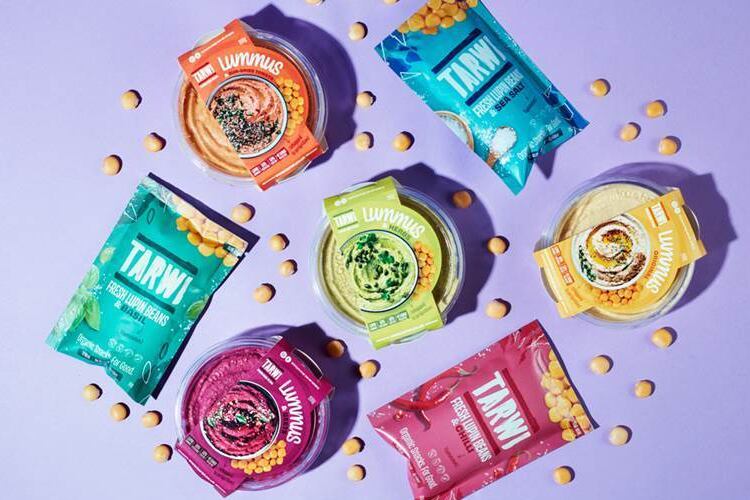“Lupin beans are a legume with an incredible nutritional profile,” food entrepreneur and Tarwi Foods co-founder Cata Gorgulho enthused. Her start up, Tarwi Foods, is launching a new range of lupin-based snacks in the UK, including marinated lupin beans in pouches and LUMMUS, a lupin version of hummus.
Lupins contain three times more protein than quinoa, three times more fibre than oats, three times more antioxidants, three times more iron than kale, and zero net carbs, we were told.
“Lupins are very high in protein and fibre, high in nutrients, very low on carbohydrates, and low calories. It is literally an all-natural protein source that can be added to any meal. Because nutritionally they are so powerful, using lupins allows you to create a food product that, from a nutritional point of view, is very powerful, using very little ingredients,” she told FoodNavigator. “Their texture reminds me of an edamame bean – it’s slightly crunchier than cooked chickpeas and beans.”
Tarwi lupin pouches, for instance, use just four ingredients but are nutritionally equivalent to a boiled egg. “We simply cook the bean and season it with fresh herbs to add taste. It is delicious, simple, and convenient.” LUMMUS contains half the calories and fat of traditional chickpea hummus and no carbs.
“We don’t think that the carbs or fat or any of the other legumes are bad. We simply believe that lupins have a nutritional profile that is different from any other legume and, considering the world is looking for more sources of plant protein, having a legume that is majorly made of protein and fibre is pretty amazing,” Gorgulho elaborated.
A sustainable European plant-protein
Gorgulho also called out the sustainability credentials of the lupin bean, explaining that cultivation promotes regenerative agriculture. “The concept of regenerative agriculture means that you give something back to the land as you grow. Because lupins fix nitrogen to the soil, they help regenerating it during their growing process - making them a great candidate for crop rotation.”
Gorgulho added that – because they return nitrogen to the soil – they reduce the need for chemical fertiliser use, thereby ‘generating less pollution in the ground and water’. The legume also require ‘very little water’. And they can be grown in Europe, making local sourcing an option.
“You can find lupin beans in Portugal, Spain, Italy and Germany. When you think that Europe depends on soya bean imports for 70% of its plant protein requirements, and that lupins represent a significant alternative to soya beans, a greater consumption of lupins could have a very strong sustainable impact,” she argued.
Currently, Tarwi – which was founded by three Portuguese friends – sources its lupin beans from the north of Portugal.
An undiscovered gem?
With such strong nutritional, functional and sustainable foundations, why have lupins gone under the radar in markets like the UK?
“We asked ourselves the same question,” Gorgulho responded. “They have been consumed for centuries in southern Europe as a beer snack, and no one knows of its nutritional benefits. We learned the hard way that they are quite hard to work with, as by nature lupin beans are toxic – they need to go through a debittering process for a few days before being fit for consumption. But now that the world shifts to a more environmentally conscious diet, we think it is a matter of time until lupin beans get their deserved spotlight!”
Nevertheless, Tarwi is aware that lupins remain ‘a fairly novel ingredient’. “I think we will need to do our part in educating consumers on what it is and what to expect in terms of taste and texture. That being said, it is still a legume and consumers are quite familiar with using beans on their diet. We see lupins as the Mediterranean response to edamame, and we are sure UK consumers will love it.”


